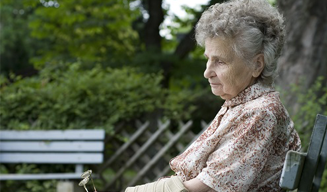
Let’s Check on The Elderly
Our initiative is to bring awareness to elder abuse and resources for help. We also visit various nursing homes, personal care homes and check on elders through phone calls, care baskets and etc.
Elder abuse is increasing ever more today. Mostly in the United States, people are consumed with every day life and busy. The world is becoming more self-centered and sees older people as a hindrance in their lives. When Hurricane Katrina was on the rise, many elders were left in their homes, nursing homes and even some took it upon themselves to murder elderly individuals they felt maybe would not have survived the hurricane. There is danger when one takes one life becoming a little god, when there is only one God of heaven and earth.
There was a bill that was introduce to legislation by Senator Orrin G. Hatch (R-Utah), on November 16, 2005, aimed for the protection of neglect and exploitation of elders. The bill is called the Elder Justice Act 2006. (Washington, DC: U.S. Government Printing Office. (2006). National Center on Eder Abuse. Retrieved 11/6/2006 from http://www.ncea.aoa.gov). There is great complexity of the definition of elder abuse. It’s greatest component is defined by the age of the victim. The age definition varies from state to state based on available services to the victims. (Loseke, Gelles and Cavanaugh, 2005)
There has been much research and sampling in the area of elder abuse. Most findings and surveys depicted elderly parents or individuals abused by their adult children whom are caring for them. The other population identified in elder abuse is by the elderly spouse or adult children who are physically, mentally or emotionally disabled and are dependent on the elder. (Loseke, Gelles and Cavanaugh, 2005) In the Bristowe and collins (1989)
study, four categories of maltreatment were identified. They are passive neglect, active neglect, verbal abuse, and physical abuse.
| Resources | Hotline Numbers |
Elder Safety |
|
National Center on Elder Abuse What Every Faith Congregation Needs to Know About Elder Abuse |
If the situation is serious,threatening, or dangerous call 911 or the local police for immediate help. Texas Adult Protective Services 1-800-252-5400 Report online:www.txabusehotline.org |
Most elders are dependent on family as caregivers. Tension, stress and frustrations tend to be higher among caregivers of elders with Alzheimer’s disease and dementia. I remembered being a chaplain at Alzheimer’s unit in northwest Houston. Many of the elders were from middle to upper class families. The families of these once vibrant productive citizens of our society spent little or no time with them. The elders would become depressed and discouraged often because they felt neglected and just wanted to be love. If you feel an elder is being mistreated or neglected, call your local Adult Protective Services. |
